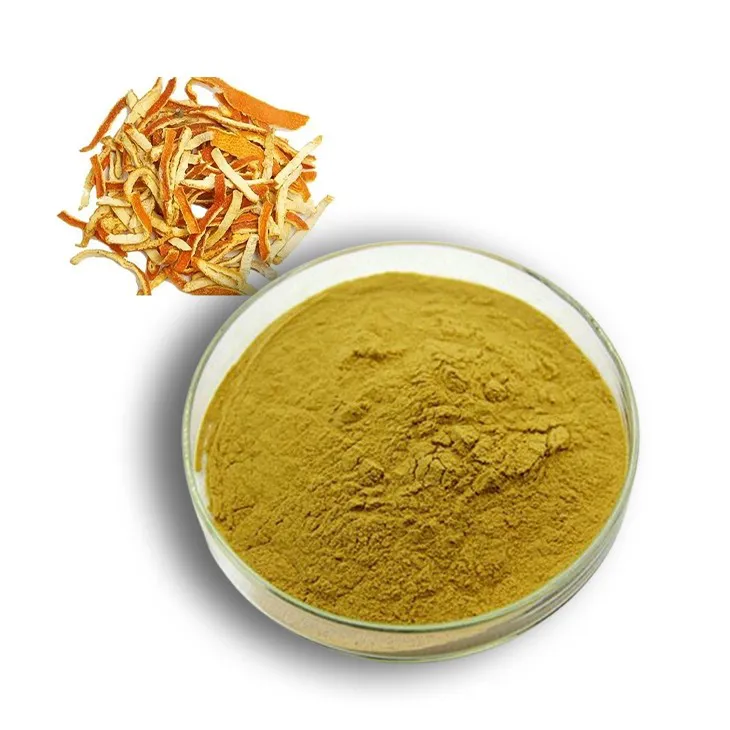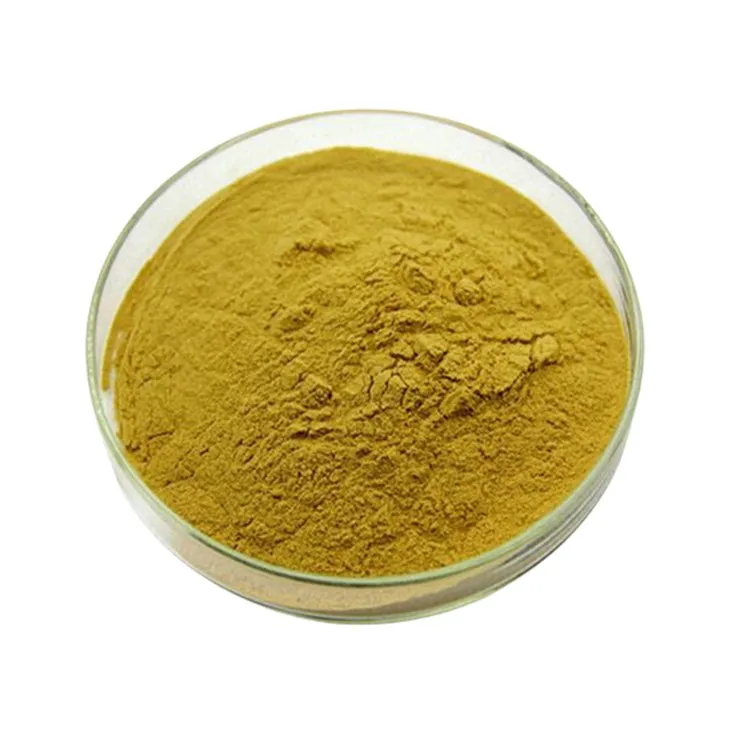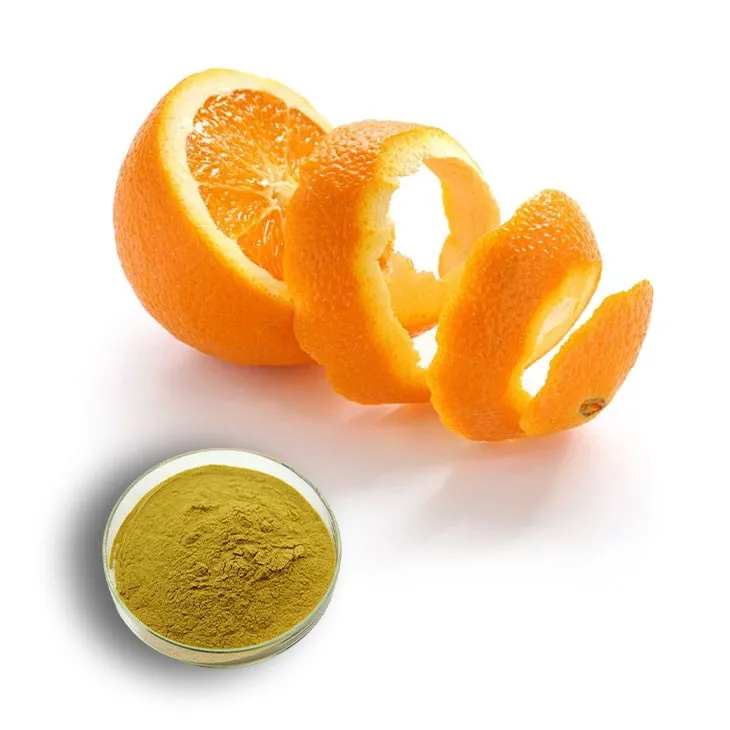- 0086-571-85302990
- sales@greenskybio.com
Benefits of Hesperidin: Is it Good for the Heart?
2025-10-27

In recent years, natural compounds derived from fruits and plants have gained considerable attention for their potential health benefits, particularly for cardiovascular health. Hesperidin, a bioflavonoid predominantly found in citrus fruits such as oranges and lemons, is one such compound. Known for its antioxidant and anti-inflammatory properties, Hesperidin is thought to support heart health and improve vascular function. This article examines the scientific evidence behind Hesperidin's benefits for cardiovascular health, explores how it works in the body, and discusses its potential as a dietary supplement for heart health.
Understanding Hesperidin
Hesperidin is a plant-based flavonoid glycoside that contributes to the vibrant color and distinctive flavor of citrus fruits. As a flavonoid, it plays a crucial role in protecting plants against environmental stressors and pathogens. When consumed by humans, hesperidin exhibits various biological activities that can benefit health, including antioxidant, anti-inflammatory, and vasoprotective effects.
In the human diet, hesperidin is primarily obtained through the consumption of citrus fruits and their juices. It has also become available as a dietary supplement in capsule or tablet forms, often marketed for its antioxidant benefits and potential effects on cardiovascular health.

Cardiovascular Benefits of Hesperidin
Antioxidant Properties
Hesperidin exhibits strong antioxidant properties, which play a vital role in protecting the cardiovascular system. Antioxidants help neutralize harmful free radicals, preventing oxidative stress that can damage cells and contribute to the development of chronic diseases. By reducing oxidative stress, hesperidin may help protect the blood vessels and heart tissues from damage, reducing the risk of atherosclerosis and other cardiovascular disorders.
Anti-Inflammatory Effects
Chronic inflammation is known to play a significant role in the development of cardiovascular diseases. Hesperidin has demonstrated anti-inflammatory effects, which can help reduce inflammation in the blood vessels and lower the risk of plaque buildup and arterial blockages. Through these anti-inflammatory actions, hesperidin may contribute to maintaining healthy blood vessels and reducing the incidence of heart disease.
Improved Blood Lipid Profiles
Some studies suggest that hesperidin can positively influence blood lipid levels, which is crucial for cardiovascular health. Research has shown that hesperidin supplementation may lower total cholesterol and low-density lipoprotein (LDL) cholesterol levels while raising high-density lipoprotein (HDL) cholesterol levels. By promoting a healthier lipid profile, hesperidin helps reduce the risk factors associated with cardiovascular disease.
Enhanced Endothelial Function
The endothelium is the inner lining of blood vessels that plays a critical role in regulating vascular function and maintaining blood pressure. Hesperidin has been shown to enhance endothelial function by promoting the production of nitric oxide, a molecule that helps relax blood vessels and improve blood flow. Improved endothelial function is associated with reduced blood pressure and a lower risk of cardiovascular complications.
Blood Pressure Regulation
High blood pressure, or hypertension, is a significant risk factor for heart disease and stroke. Research suggests that hesperidin can help regulate blood pressure levels by improving endothelial function and promoting vasodilation. Some clinical trials have shown that hesperidin supplementation can lead to modest reductions in both systolic and diastolic blood pressure, offering a potential natural approach to managing hypertension.

Potential Mechanisms of Action
The cardiovascular benefits of hesperidin can be attributed to several underlying mechanisms:
Antioxidant Action: By scavenging free radicals and reducing oxidative stress, hesperidin protects vascular tissues from damage and supports overall heart health.
Inflammatory Modulation: Hesperidin inhibits the production of pro-inflammatory cytokines and enzymes, reducing inflammation in blood vessels and lowering the risk of atherosclerosis.
Cholesterol Metabolism: Hesperidin influences lipid metabolism, helping to improve blood lipid profiles and reduce LDL cholesterol levels.
Endothelial Function Enhancement: Hesperidin boosts nitric oxide production in the endothelium, promoting vasodilation and improving blood flow.

Clinical Evidence and Research
Several studies have investigated hesperidin's effects on cardiovascular health, providing insights into its therapeutic potential. A randomized controlled trial published in the "American Journal of Clinical Nutrition" reported that participants who consumed orange juice enriched with hesperidin experienced significant improvements in endothelial function and reduced levels of markers associated with inflammation.
Another study published in "The Journal of Clinical Hypertension" demonstrated that hesperidin supplementation led to reductions in blood pressure among hypertensive patients, supporting its potential role in blood pressure management. Moreover, animal studies have shown promising results regarding hesperidin's ability to reduce cholesterol levels and prevent atherosclerosis.
While these findings are encouraging, more extensive human clinical trials are needed to fully understand hesperidin's cardiovascular effects and determine optimal dosing strategies for heart health.

Considerations and Safety
Hesperidin is generally considered safe for consumption, especially when obtained through dietary sources such as citrus fruits. However, when considering hesperidin supplementation, it's important to keep the following in mind:
Dosage and Formulation: Follow the recommended dosage on supplement labels and consult with a healthcare professional before beginning supplementation, especially if you have pre-existing health conditions or are taking medications.
Potential Interactions: Hesperidin may interact with certain medications, particularly blood thinners and medications that affect blood pressure. Consulting a healthcare provider is advised to prevent any adverse interactions.
Pregnancy and Nursing: Limited research exists on the safety of hesperidin supplements during pregnancy and nursing. It is advisable for pregnant or breastfeeding women to seek guidance from a healthcare provider before adding hesperidin to their routine.
Conclusion
Hesperidin, a bioflavonoid found in citrus fruits, offers promising cardiovascular benefits attributed to its antioxidant, anti-inflammatory, and vasoprotective properties. From improving endothelial function to regulating blood pressure, hesperidin's potential role in heart health is supported by a growing body of research. While hesperidin is generally safe for consumption, individuals interested in its cardiovascular benefits should consider dietary sources and consult healthcare professionals when contemplating supplementation. As research in this field progresses, hesperidin may increasingly be recognized as a valuable component of a heart-healthy lifestyle and dietary regimen.
, a great article source where you can learn about Supplements and their health benefits, you also can get the latest food Supplements. Green Sky Bio provides the best extracts and supplements. It is a Chinese self-developed brand that is trustworthy! Welcome to email us to inquire about our products.
- ▶ Hesperidin
- ▶ Citrus Bioflavonoids
- ▶ Plant Extract
- ▶ lycopene
- ▶ Diosmin
- ▶ Grape seed extract
- ▶ Sea buckthorn Juice Powder
- ▶ Fruit Juice Powder
- ▶ Hops Extract
- ▶ Artichoke Extract
- ▶ Mushroom extract
- ▶ Astaxanthin
- ▶ Green Tea Extract
- ▶ Curcumin
- ▶ Horse Chestnut Extract
- ▶ Other Product
- ▶ Boswellia Serrata Extract
- ▶ Resveratrol
- ▶ Marigold Extract
- ▶ Grape Leaf Extract
- ▶ New Product
- ▶ Aminolevulinic acid
- ▶ Cranberry Extract
- ▶ Red Yeast Rice
- ▶ Red Wine Extract
-
Grape Leaf Extract
2025-10-27
-
Apricot Powder
2025-10-27
-
Calendula Extract
2025-10-27
-
Konjac Powder
2025-10-27
-
Acerola Extract
2025-10-27
-
Longan Extract
2025-10-27
-
Lemon Extract
2025-10-27
-
Scutellaria Extract
2025-10-27
-
Alfalfa Meal
2025-10-27
-
Angelica sinensis extract
2025-10-27





















